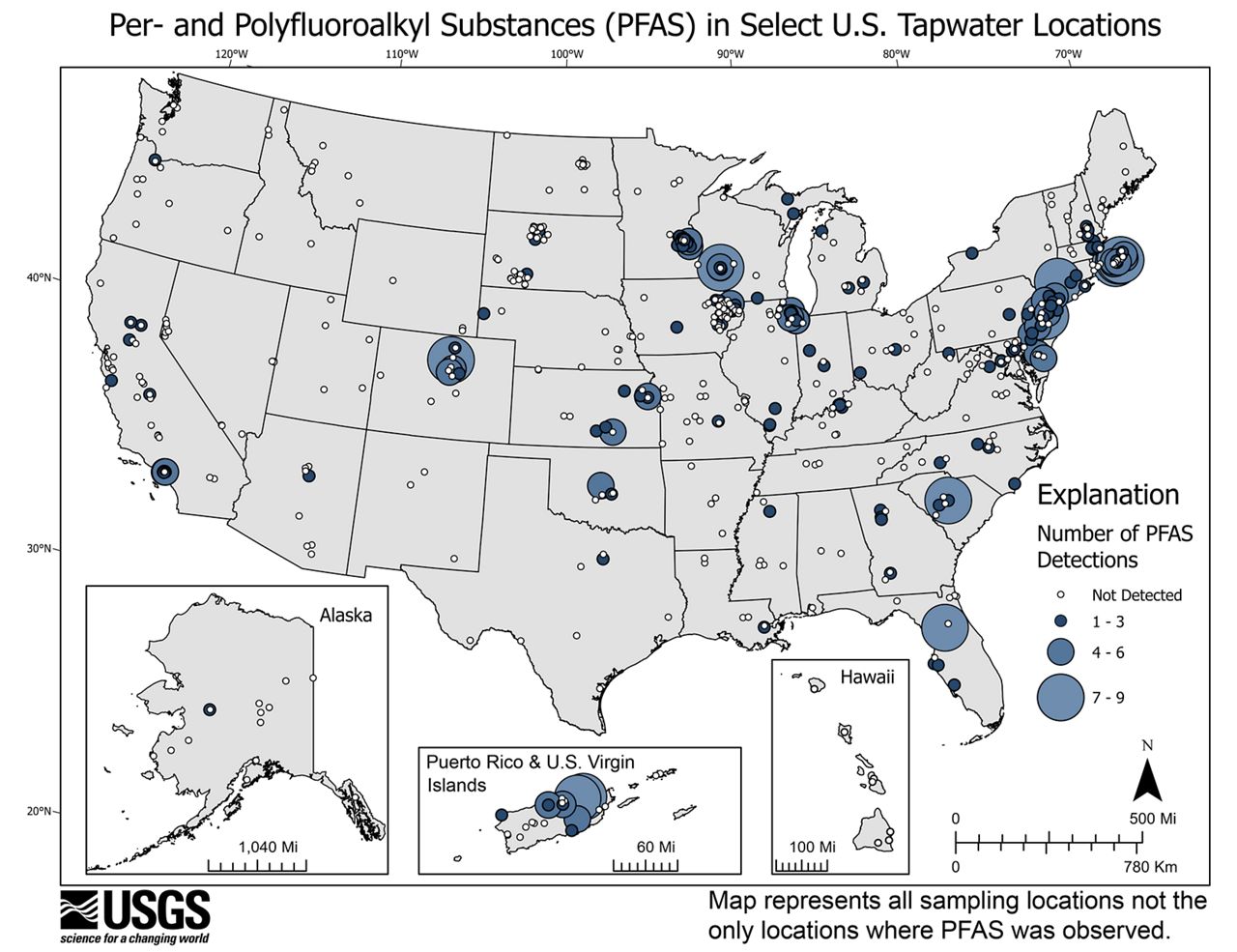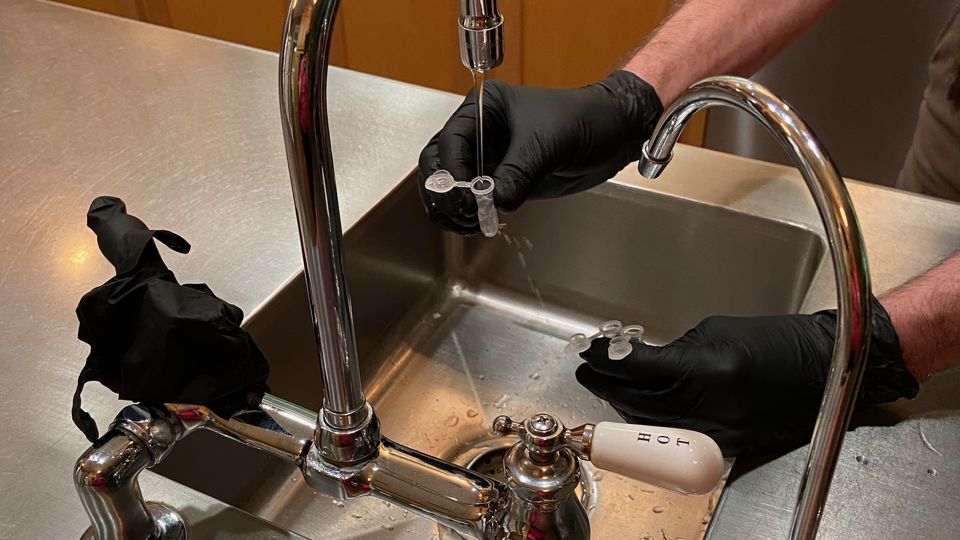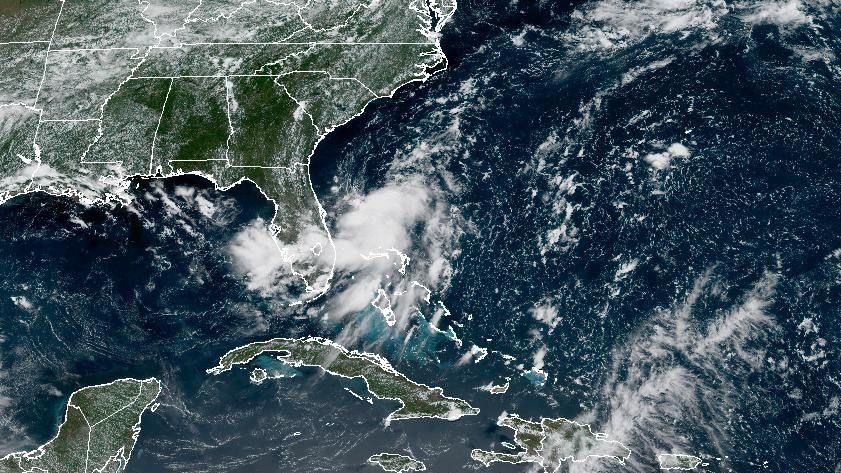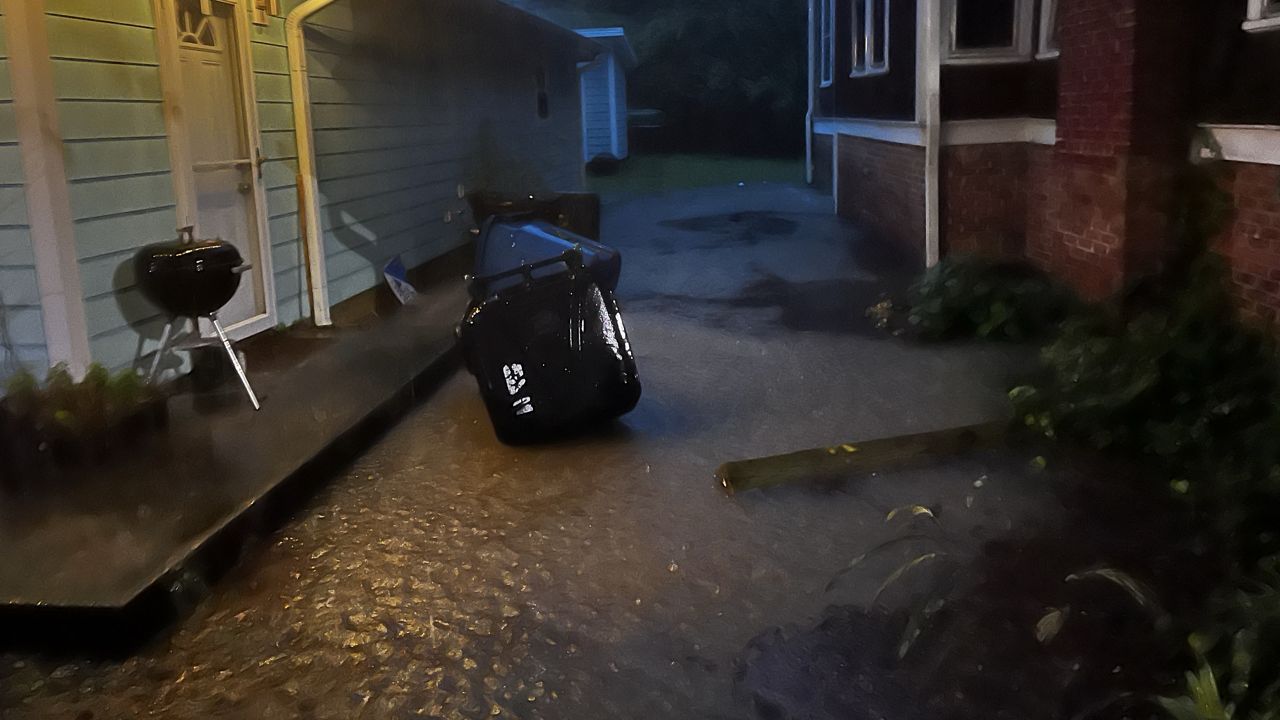PFAS, a class of man-made chemicals, has been found in drinking water across the country, according to a new study by the U.S. Geological Survey. Federal researchers say at least 45% of the nation’s drinking water is contaminated with PFAS.
In North Carolina, PFAS pollution has long been a problem. The issue is especially acute along the Cape Fear River, where the Chemours plant in Fayetteville had polluted the river with PFAS chemicals for years. Communities along the Cape Fear have had to install better water filters and some homes had to switch to bottled water.
"USGS scientists tested water collected directly from people’s kitchen sinks across the nation, providing the most comprehensive study to date on PFAS in tap water from both private wells and public supplies,” said USGS researcher Kelly Smalling, the study’s lead author.
“The study estimates that at least one type of PFAS – of those that were monitored – could be present in nearly half of the tap water in the U.S. Furthermore, PFAS concentrations were similar between public supplies and private wells,” she said.
PFAS are often called “forever chemicals” because they do not break down in the human body or the environment. They’ve been linked to increased risk for developmental delays in children and some cancers, among other health effects, according to the EPA.
USGS researchers tested water in 716 communities across the country, including 11 in North Carolina, according to the peer-reviewed journal article published by Science Direct. The tests included private wells and public water supplies.

They found PFAS in four of the North Carolina test sites. While the study does not give the exact locations of the North Carolina test sites, the map shows positive tests at a private well near Durham, and public water supplies near Wilmington, Raleigh and Charlotte.
The researchers found most of the positive tests for PFAS chemicals in urban areas and close to plants that could potentially be sources for PFAS.
The federal Environmental Protection Agency is considering new rules for PFAS in drinking water. The EPA is proposing a new drinking water limit of 4 parts per trillion for PFOA and PFOS, the two most common types of PFAS compounds.
A separate study by the North Carolina Department of Environmental Quality found widespread PFAS contamination in drinking water across the state. DEQ last year took water samples from 50 communities around North Carolina and found PFAS levels above that proposed EPA limit in 35.
The new federal study shows PFAS pollution widespread around the country. The researchers say there’s a 25% chance of PFAS in tap water for rural areas and a 75% chance for people in urban areas.
There is limited information on PFAS in residential tapwater at the point-of-use, especially from private wells. We conducted a national reconnaissance to compare human PFAS exposures in unregulated private-well and regulated public-supply tapwater,” according to the study.
“Approximately 40 million people in the U.S. rely on private wells for drinking water,” according to the study, and they may be more at risk.
“Small public supplies and private wells may be disproportionally affected by PFAS,” the researchers said, calling for more research and expanding testing to more small and rural communities around the United States.









